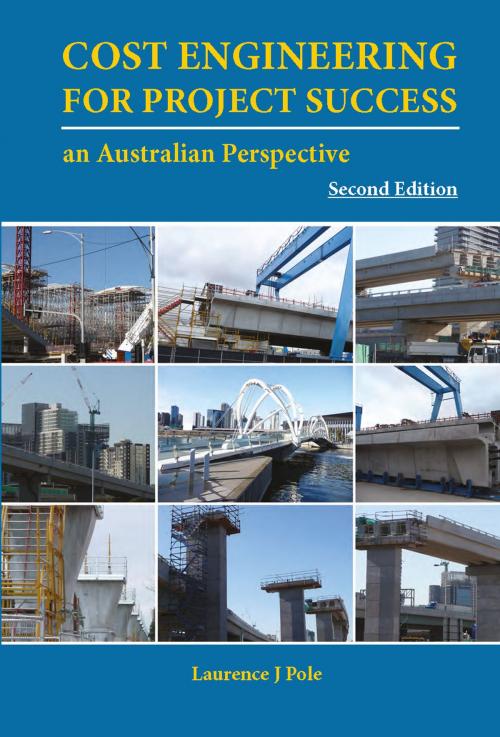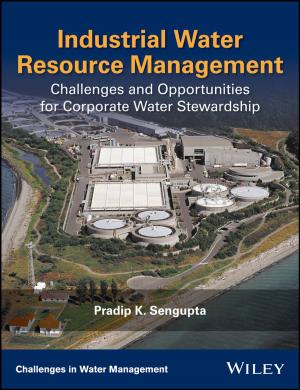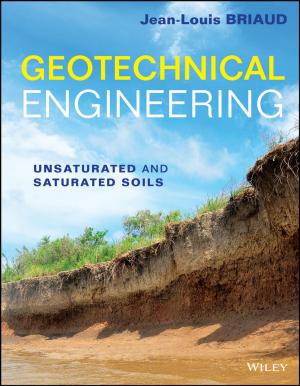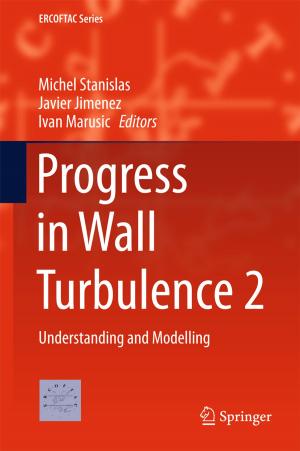Cost Engineering for Project Success
An Australian Perspective, Second Edition
Nonfiction, Science & Nature, Technology, Construction & Construction Trades, Engineering| Author: | Laurence J Pole | ISBN: | 9781925627107 |
| Publisher: | Laurence J Pole | Publication: | May 12, 2017 |
| Imprint: | Language: | English |
| Author: | Laurence J Pole |
| ISBN: | 9781925627107 |
| Publisher: | Laurence J Pole |
| Publication: | May 12, 2017 |
| Imprint: | |
| Language: | English |
The measure of a successful project is “did it achieve its intended purpose” and “was it completed on time and within budget”. Cost Engineering is the art and science of putting in place controls and methodologies to achieve the best outcomes for a project. The purpose of this book is to provide students, engineers and project personnel with an understanding of the fundamental factors affecting project costs and progress. It also provides the tools and techniques to enable them to anticipate changes and trends away from the work plan, before they occur, and take positive action to obtain an optimum outcome. Even though the knowledge and techniques outlined here come primarily from civil and construction projects they have wider application in multidisciplinary projects where time and cost are imperatives. The aim is to equip the reader with the key cost engineering skills necessary for them to improve project performance, avoid unfortunate “surprises” and achieve optimal outcomes. Edition 2 has been updated because of increases in the cost engineering body of knowledge during the intervening years since edition one was published. It has been enhanced with inputs from various Engineers Australia technical meetings and conferences and updated publications of the Association for the Advancement of Cost Engineering International (AACEI). The author, Laurence Pole, with input from many practising cost professionals, has made clear the basic issues involved in understanding essential project elements, identifying cost and time constraints, and controlling outcomes for successful project delivery. Author Bio: Laurence Pole is a civil engineer and cost engineering practitioner with experience in civil and structural design, building and major infrastructure construction, furnace and heat treatment manufacture, within Australia, New Zealand and Indonesia. In a career spanning more than forty years he has been involved in the design, costing and construction of multi-storey buildings, roads, railways and marine structures. Since 2004 he has lectured in Cost Engineering at Swinburne University of Technology in Melbourne, Australia.
The measure of a successful project is “did it achieve its intended purpose” and “was it completed on time and within budget”. Cost Engineering is the art and science of putting in place controls and methodologies to achieve the best outcomes for a project. The purpose of this book is to provide students, engineers and project personnel with an understanding of the fundamental factors affecting project costs and progress. It also provides the tools and techniques to enable them to anticipate changes and trends away from the work plan, before they occur, and take positive action to obtain an optimum outcome. Even though the knowledge and techniques outlined here come primarily from civil and construction projects they have wider application in multidisciplinary projects where time and cost are imperatives. The aim is to equip the reader with the key cost engineering skills necessary for them to improve project performance, avoid unfortunate “surprises” and achieve optimal outcomes. Edition 2 has been updated because of increases in the cost engineering body of knowledge during the intervening years since edition one was published. It has been enhanced with inputs from various Engineers Australia technical meetings and conferences and updated publications of the Association for the Advancement of Cost Engineering International (AACEI). The author, Laurence Pole, with input from many practising cost professionals, has made clear the basic issues involved in understanding essential project elements, identifying cost and time constraints, and controlling outcomes for successful project delivery. Author Bio: Laurence Pole is a civil engineer and cost engineering practitioner with experience in civil and structural design, building and major infrastructure construction, furnace and heat treatment manufacture, within Australia, New Zealand and Indonesia. In a career spanning more than forty years he has been involved in the design, costing and construction of multi-storey buildings, roads, railways and marine structures. Since 2004 he has lectured in Cost Engineering at Swinburne University of Technology in Melbourne, Australia.















